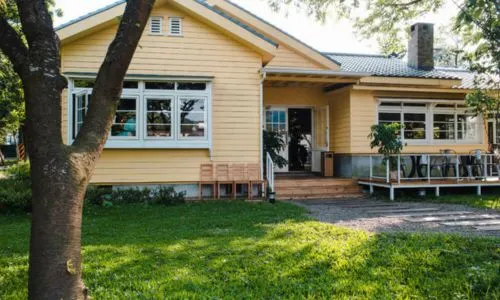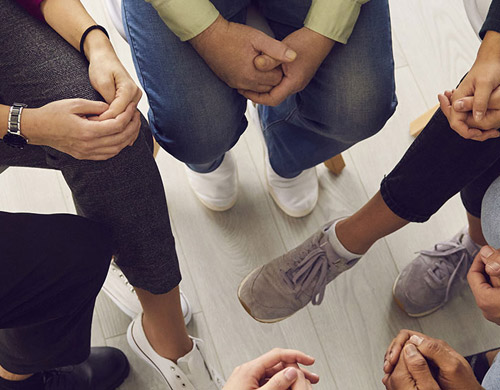It can feel so lonely when you or someone you love has struggles with drug or alcohol dependence, that you don’t know how to help. Fortunately long term sobriety can be achieved if you make use of proven rehabilitation methods because addiction is a treatable illness.
This page will detail how integrating addiction treatment methods can assist with a sober future for you or a loved one.
What is Addiction Rehab (Rehabilitation)?
The term addiction ‘rehab’ is applicable to all of the medical and therapeutic treatments used to help people who have dependencies on recreational, illegal and prescription substances. There is no ‘one size fits all’ approach to addiction rehab because it needs to be unique to your requirements and may incorporate medical detox, residential and outpatient programs, and long-term relapse prevention programs.

Facts & Statistics about Addiction in San Clemente
Prevalence of Substance Use Disorder, by Drug Type
(IN THOUSANDS)
- 2,7578.5%Any Substance
- 2,0886.4%Alcohol
- 1,0683.3%Ilicit Drugs
- 2060.6%Pain Medication
Drug- and Alcohol-Induced Deaths by Age Group, California, 2016
- Alcohol-Induced
- Drug-Induced
- 18 to 250.5
- 9.6
- 26 to 354.3
- 13.9
- 36 to 6424.2
- 22.9
- 65+23.7
- 9.4
Drug Use, by Selected Type and Age Group California, 2015 to 2016
- 12 to 17
- 18 to 25
- 26+
- Marijuana*13.2%
- 34.0%
- 13.5%
- Misuse of Pain Medications3.5%
- 8.0%
- 4.3%
- Cocaine0.8%
- 7.2%
- 1.8%
- Heroin0%
- 0.4%
- 0.2%
What are the treatment options available in San Clemente?
Identifying and healing the root causes behind your drug or alcohol dependence can be achieved through the use of an holistic treatment program. It is vital to treat the symptoms of addiction, but coping strategies need to be considered, in order for you to work with the triggers that lead to the substance dependency.

Private Residential Programs
Reside at the center where you are receiving counseling, you are taking part in a residential addiction treatment program. Its main benefit is the ability to receive integrated addiction treatment and support 24-hours a day.
If you leave your home and move into a treatment center, you can free yourself from exposure to stressors that may have influenced your decision to abuse drugs or alcohol.
When you stay in a safe and supportive environment you can protect yourself from relapse and increase the likelihood of finishing your treatment program. If you have co-occurring disorders, dual diagnosis or a strong dependency on drugs or alcohol, an inpatient program is ideally suited to meet your recovery needs.
An inpatient treatment program will support you with getting sober, but maintaining sobriety will require persistent effort as the early stages of recovery are usually challenging. Once your residential program is finished you will learn how to be more independent and your focus will be on your new life and the things you want to achieve from it.
Do You Need Help?
Our admissions team is ready to answer your questions.

Sober Living Programs
Sober living programs are designed with the needed guidance to help people in recovery achieve what they want from life. They assist you through:
- Sending a house manager to check in on you every day
- Prescribing the sorts of behaviors that are required in recovery
- Building on supportive and beneficial relations with others in recovery
Detox Only Programs
The first phase of any treatment program is a detox, which eliminates any substances from your system and deals with your dependency on it. As your body stabilizes without substances in your body, you may experience withdrawal symptoms. By completing the detox stage you will continue forward in your recovery journey, as you come to terms with the main causes that lead to your dependency, helping you recognise the patterns and avoid it in the early stages of recovery and beyond.
You can expect to feel some cravings and withdrawal symptoms for a few weeks after your drug or alcohol detox program has ended. Relapse is less of a concern if you are equipped with the vital skills necessary to navigate your path in recovery
Outpatient Programs
Outpatient programs are easier to adjust to as you can continue your work/family commitments and still undergo treatments, by coming to the rehab center weekly.
Outpatient programs offer support through:
- Education on drug use
- Therapeutic and psychological interventions like group and individualized therapy – Outpatient programs should last between 3-4 months to over a year, this will depend on your needs.
Paying for Private Treatment
If you opt for private treatment, you can claim from your health insurance or pay with your own funds. Most health insurance providers typically cover at least parts of your rehab program, including detox, therapy and counseling, medicines and post-rehab support. The amount you are eligible for will be set by your provider and your agreement.
We advise that you confirm how much you can claim prior to enrolling in rehab. Our Verify Your Insurance page can help you find out how much cover you can claim for. By not making a claim via your health insurance cover, the cost of your treatment needs to be covered directly. Some treatment providers may provide payment plans to clients who find the costs unaffordable upfront.
State Funded Programs
State-funded treatment programs were developed to support individuals who do not have the financial resources to tackle alcohol or drug dependence.
By using funds provided from Medicaid and state/federal budgets, these sorts of programs can subsidize your recovery with:
- Medically-assisted detox programs
- Rehab therapy and ongoing support
State-funded treatment programs provide relief to people with little to no disposable income or private healthcare policies. So that you can quality, you will need to provide information regarding:

The following state-funded addiction rehab programs are available in San Clemente:
Covenant Hills Treatment Center Mens Residential
217 and 219 Avenida Monterey, Suite A , San Clemente, CA 92672
844-268-8412
https://covenanthillstreatment.com/One North Recovery LLC
634 Vista Valinda, San Clemente, CA 92672
714-880-9777
https://www.onenorthrecovery.com/Chapters Capistrano
1525 Buena Vista, San Clemente, CA 92672
888-486-6717
https://chapterscapistrano.com/
Maintaining Addiction Recovery in San Clemente
Leaving a rehab center and returning home can prove challenging for people in the early stages of recovery. At the rehab center the environment was safe and you had professional support.
As you adjust to life after rehab it is very likely that you will find yourself in situations that you still need to learn to address. In our experience, clients with intense dependencies and those who do not develop the necessary support structure find long term recovery more difficult when they leave rehab. Without the relevant support and aftercare to guide you in your new life, relapse is a real possibility.
The following AA/NA meetings are available in San Clemente:
First Christian Church – Glendora
Open Living Clean Study: 300 North Glendora Avenue, Glendora, CA 91741
Wednesday: 8:00 PM
https://www.na.org/CA - “THE ZOO” – OPEN PARTICIPATION
Hybrid: 202 Avenida Aragon, San Clemente 92672
Wednesday: 7:30 PM
https://orangecountyca.info/AA - A Look At The Book
Open: 929 Calle Negocio, San Clemente, CA, 92672
Wednesday: 6:00 pm – 7:00 pm
https://alcoholicsanonymous.com/
Aftercare & Alumni Programs
Aftercare programs are an extension of rehab once you leave the rehab center. By taking part in aftercare support, you can lessen the risk of relapse which impacts up to 60% of people who have recently finished treatment. It is an essential service provided by most treatment centres.
When your rehab program is close to completion, we will discuss the therapies and counseling most helpful for your long-term recovery and the appropriate aftercare provisions will be devised to assist you. Clients who complete their drug or alcohol treatment programs will gain access to an alumni community program like ours, which provides you the opportunity to interact with staff and others in early recovery.
This fantastic network provides you with access to our special events, including ongoing support and mentorship from other former clients also in recovery. If you decide to, you can also reciprocate in the program by supporting other people if you like.
Support Groups (Fellowship Meetings)
Support groups really are important to maintaining recovery as they focus on the need for social interactions in recovery. Some of the oldest and most successful support groups are Alcoholics Anonymous and Narcotics Anonymous, which benefit from the 12-steps to help those in recovery via nearby meetings.

During local meetings, you will share and listen to experiences. Many people in recovery attend local meetings to support them in the early and later stages of addiction recovery. Support groups provide them with the important tools to stay sober, and allow them to take responsibility for their own journey in recovery.
Support for Families & Children Affected by Addiction

Each family member is affected, to different degrees, by addictive behaviors. Help and support is just as important for the family members as it is for the individual with the substance use disorder.
By taking part in family support groups, families can manage stressful situations more efficiently, and be able to support your family member in recovery. Examples of Family and Child Support Groups are:
- Parents of Addicted Loved Ones
- SMART Recovery Family & Friends
- NAMI Family Support Groups
- Al-Anon
- Families Anonymous
- Alateen
- Nar-Anon









